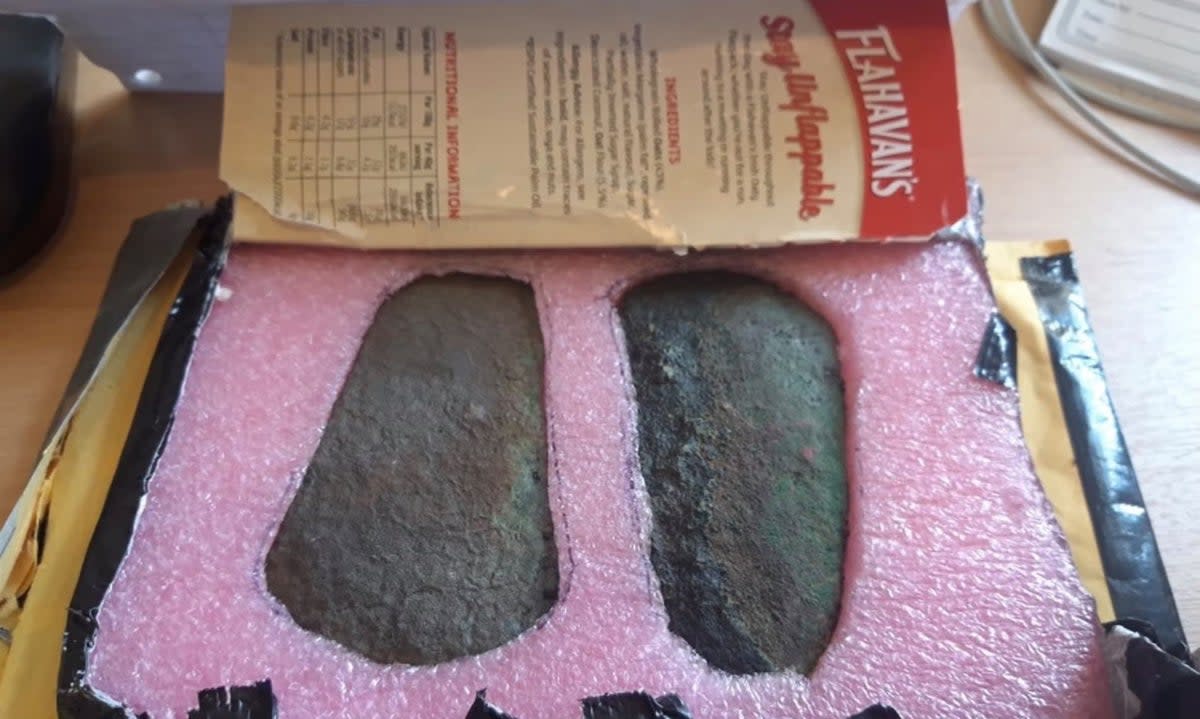Irish museum solves mystery of bronze age axe heads delivered in porridge box

An Irish museum has solved the mystery of a bizarre delivery of two bronze-age axe heads delivered to curators inside a porridge box.
The National Museum of Ireland was left mystified after it received two 4,000-year-old axe heads wrapped in foam inside a porridge box from an anonymous sender in June.
Now, it has identified the sender as Thomas Dunne, a farmer from County Westmeath, who made the “absolutely mad” discovery while using a metal detector on his land.
Mr Dunne, whose family has owned the land for 40 years, said he initially thought the axe heads were the remnants of a horse shoe and was “shocked” to discover their significance.
“I only found out about it a week after it had been in the news and I was surprised, to say the least. It’s absolutely mad when you think about it,” he told the Irish Times.
He came forward after the museum issued an appeal calling for more information, saying it was “crucial to know the exact location where they were found” for “reasons that could range from ritualistic to supernatural”.
Matt Seaver, assistant keeper of Irish antiquities at the museum, said: “We are thrilled about the discovery of these Early Bronze Age axeheads, but to truly understand their significance, we need to know where they were found.”
Researchers from the national museum have now visited the site to log it in the hope of finding more information about the people who lived there 4,000 years ago.
They also said it was participating in an international study of bronze age metalwork to trace the origins of the metals used in such artefacts - with the latest discovery helping with this.
The museum said it was the authority with responsibility for the care of archaeological objects, and the Irish state’s repository for all archaeological objects both from excavations and other sources.
It is against the law in Ireland to search for archaeological objects using a metal detector unless written permission has been given.
Penalties can be up to three months in prison or a fine of up to €63,486 (£53,435). It is understood, however, that Dunne will not face charges.
“We also wish to remind everyone about the regulations surrounding the use of metal detectors for searching archaeological objects,” the museum said.
“Archaeological finds without a known owner are the property of the state and are preserved as part of our collective heritage in national and designated museums.”

